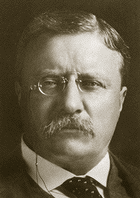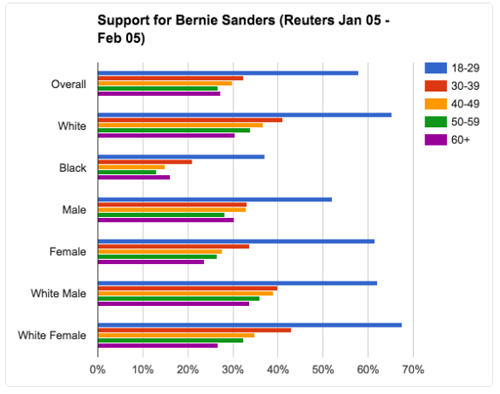Recently I’ve seen a lot of essays and comments on the glories of pragmatic, incremental change. I’ve even seen social media commenters saying that the U.S. has always been a nation of slow, incremental change.
Which, of course, is bullshit. If anything we are a nation that does things in fits and starts. We will sometimes ride the status quo for awhile, but then when we take a notion to change, we can create big change pretty durn fast.
Or, at least, we used to. We’ve been in something of a long rut of can’t-do, I admit. But it’s nonsense to say that’s always the way things have been in the U.S.
Let’s just look, for example, at the Progressive Era, which began in 1890 with the passage of the Sherman Antitrust Act. Along with massive amounts of business reform that accelerated when Teddy Roosevelt had anything to say about it, this era also saw the rise of labor unions. Congress passed the first Food and Drug Act in 1906, created the Department of Labor in 1911, and ratified the Sixteenth (income taxes) AND Seventeenth (direct election of Senators) Amendments in 1913. The Eighteenth (prohibition) and Nineteenth (women’s suffrage) Amendments were both ratified in 1919. And those were just the high points. There were countless other laws and regulations passed on both state and national levels that impacted just about everyone in fundamental ways. And while this was going on people were switching over from horses to automobiles and acquiring electricity and telephones.
The Prohibition thing didn’t work out so well, but it was a lot of change — in government, in culture, in technology. Of course many of the laws, such as the antitrust laws, were revised over time, but the initial laws were not exactly tweaks. Many of these changes were transformative, not incremental, change. I talk about the difference below.
Do we need to review the stuff that happened during the New Deal? Do we? And then think about the 1950s and 1960s. We went to the freaking moon, people. The Civil Rights movement brought about massive changes in our culture pretty quickly because people stood up and said, we gotta change. Not, we gotta change some day.
It seems to me that from the mid-1970s on, we shut down and decided we couldn’t do big change any more. The single Big Thing that has happened is computers and the technology that flowed from that. The Cold War ended, for which some of us took credit, but it really wasn’t our doing, exactly.
In the 1930s we built the Hoover Dam. Now we can’t even fix potholes. Atrios wrote last week,
Infrastructure price tags always sound like huge unthinkable numbers. ONE HUNDRED BILLION DOLLARS. And it is true that it is hard for state and local governments to come up with that kind of money. For the federal government it is chump change, even leaving aside some more creative ways of paying for it.
Once upon a time the US really was ahead of basically every other country in the world. It was shiny and new. We had shiny new highways, our cities weren’t bombed out by wars (though we did a pretty good job subsequently at destroying them ourselves), lower middle class people had things like refrigerator/freezers and cars, and potable water coming out of the tap was the norm. Things were clean. We had nice affordable hospitals. It was an understandable symbol of progress, of modernity.
Now much of the world has those things, along with in some cases some things are more humane and appealing. I don’t think Trump is really talking about BUILD MORE SUPERTRAIN TUNNELS when he says “make America great again,” but it is the case that the country isn’t shiny and new like it was. The Reagan era made nice things, even fixing nice things, unpossible for going on 40 years now. Something has to change.
 Lots of stuff has to change. Oh, but we’re not supposed to do BIG all-at-once change. We have to pragmatic little baby-step change. And while baby steps are better than nothing, there’s nothing inherently virtuous about baby steps. Baby steps are what you do from a position of weakness. Baby steps are what you do when there’s resistance and you lack the means to do big steps.
But we actually have the means to do big steps. We just don’t have the will.
What’s the difference between transformative and incremental change? A definition of transformative change is change that takes us in a new direction, and isn’t just a new variation of what was already happening. One article I found used music as an example — the invention of musical recording was a transformative change that impacted behaviors like concert attendance and the piano and sheet music industries. However, the invention of cassette tapes over vinyl was an incremental change.
Another article defined incrementalism as a kind of resilience. These are changes that allow us to adapt to conditions as they are. Transformative change, of course changes the conditions. I think that’s important. It’s not just about whether the change is fast or slow, or whether it’s done in stages or all at once. Is it adapting to prevailing conditions, or is it changing prevailing conditions?
For example, since the 2008 crash nothing transformative has happened to the financial sector. All that was done was just to allow us to survive and adapt to the monstrosity the financial sector has become. Global climate change calls out for transformative instead of incremental, but so far we’re barely managing incremental. The ACA works, yes, but it’s another example of a mostly incremental change rather than a transformative one. We can say it’s a BIG incremental change, but it’s mostly an adaptation that allows more people to get insurance rather than a real transformation of our health care delivery system.
Incremental change is sometimes just foot dragging. It’s making things work just a little longer, until it can’t be made to work any more. It’s used to keep us placated so the transformative change we really want can be postponed.
Sometimes adaptations to conditions are fine; if conditions are not that bad, or are probably temporary, maybe a few tweaks are all we need. But we’ve gotten into a rut in which we’re told all we will ever get are tweaks. That’s been doing on way too long.


